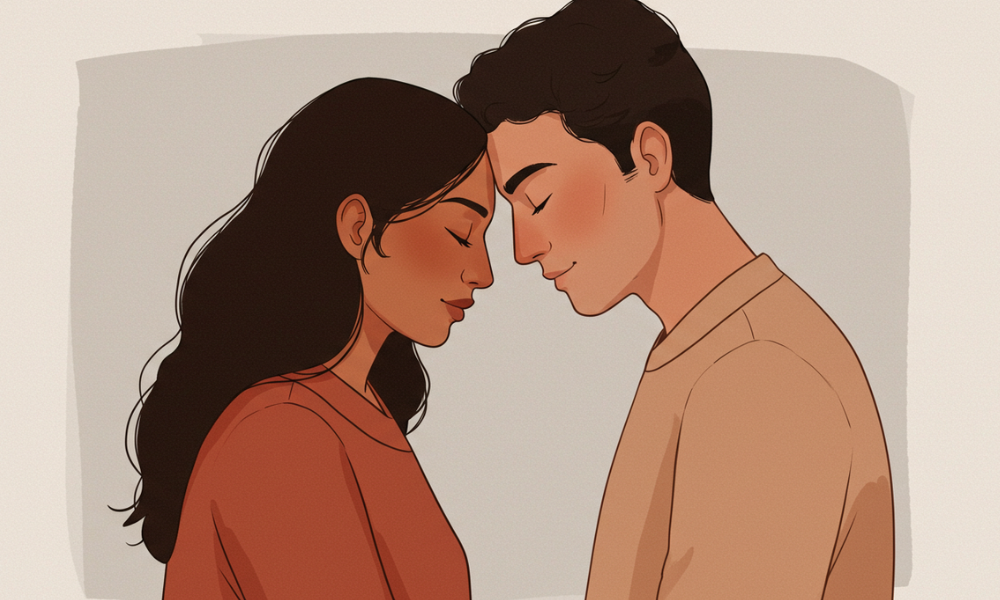Childhood is often regarded as the most important time in our lives. It’s a period in which we learn as we grow, mature, and build an understanding of who we are. But for many it’s not always filled with fun days and pleasant memories. Being a victim of trauma in those early times can have a huge impact on our lives, and the effects tend to be felt throughout adulthood, specifically in how we manage relationships. Although this might sound a bit heavy but understanding how childhood trauma impacts relationships in adulthood can be a powerful approach to healing and creating more enduring connections.

What Is Childhood Trauma?
Childhood trauma can take a variety of varieties. It could be a result of neglect, abuse, experiencing violence or having a family that didn’t meet your emotional needs. Trauma doesn’t require caused by extreme circumstances. It can also be a result of experiences such as parental divorce or bullying, or even feeling in constant need of support. Whatever the reason trauma, it can create emotional scars that affect the way we view ourselves and interact with other people.
The Connection Between Childhood Trauma and Adult Relationships
As children our brains function like sponges, taking in all the things around us. We learn about trust, love and connection from our parents and from early experiences. If these experiences were difficult or unstable, it could affect our views regarding relationships, in ways that we may not even be aware of. Here are some typical ways that childhood trauma may affect relationships in adulthood:
1. Fear of Abandonment
If you have a childhood experience of feeling physically or emotionally abandoned you may be battling a nagging fear of being left out in your relationships with people you’ve grown up with. The fear could manifest itself as an obsession with assurance, or even threatening to push people away in order to avoid being injured.
2. Difficulty Trusting Others
The effects of trauma can make it difficult to be able to trust others. If your trust was damaged when you were a child, whether through a parent or other than you, you may be unable to trust that other people will keep their word or have your best interests in mind. This could lead to a sense of security or feelings of doubt in relationships.
3. Attachment Issues
Trauma can alter how we develop attachments to people. Certain individuals develop anxious attachment patterns which are characterized by a desire for intimacy, but are scared of being rejected. Others might prefer to avoid attachment, and keep a distance from their emotions to avoid potential hurt.
4. Low Self-Worth
Growing up in a family that made you feel unloved or not worthy can result in negative self-images. When you are an adult, this could be manifested as settling for bad relationships, a feeling of not being worthy of affection, or seeking validation from other people.
5. Emotional Reactivity
Trauma can leave us with sensitive emotions. In relationships, this may be a sign of overreacting to minor disputes or misinterpreting your partner’s motives. These behaviors are usually rooted in unresolved issues that has been accumulated from the past.
Steps Toward Healing and Healthy Relationships
The positive thing is that the trauma of childhood shouldn’t define your future. Though its effects can be overwhelming at moments, healing is feasible. Here are some helpful tips to help you make progress:
1. Acknowledge Your Past
The first step towards healing is to acknowledge the way your childhood experiences formed your character. It’s not about blaming you or others, it’s about knowing the source of your thoughts and actions.
2. Seek Support
It’s not necessary to go through this road by yourself. Speaking with a therapist that has a specialization in trauma can offer valuable tools and insight. Opening up to trusted acquaintances and joining groups of support can make you feel less lonely.
3. Practice Self-Compassion
It’s easy to be harsh on yourself for having a difficult time in relationships, but keep in mind that you’re doing all you can with what you’ve gone through. Give yourself a hug and patience while you work towards the next level of growth.
4. Learn Healthy Communication
Healthy relationships are built on honesty and open communication. If you find it difficult take small steps, such as communicating your feelings or establishing boundaries, to build confidence as time passes.
5. Focus on Emotional Regulation
The ability you can manage your emotional state is essential for building stronger bonds with people around you. Methods such as mindfulness journaling, journaling, as well as deep breathing techniques can assist you to to respond with more ease during times of stress.
6. Reframe Your Beliefs About Love
Trauma may be a source of teaching that love can be a conditional or unsecure But that doesn’t have to remain your reality for ever. Surround yourself with examples of healthy relationships–whether through friends, family, or even books and media–and remind yourself that love can be safe and nurturing.
A Journey Worth Taking
The process of healing from childhood trauma isn’t something that can be done in a day. It’s a process which requires effort, time and self-compassion. However, the rewards are well worth the effort: stronger connections, stronger limits, as well as a more positive satisfaction with yourself.
Be aware that your past does not have to determine your future. You can break out of old habits and building the loving relationships you’ve always wanted. Be mindful of yourself as you walk this path. You’re not on your own, every step is worth taking pride in!



